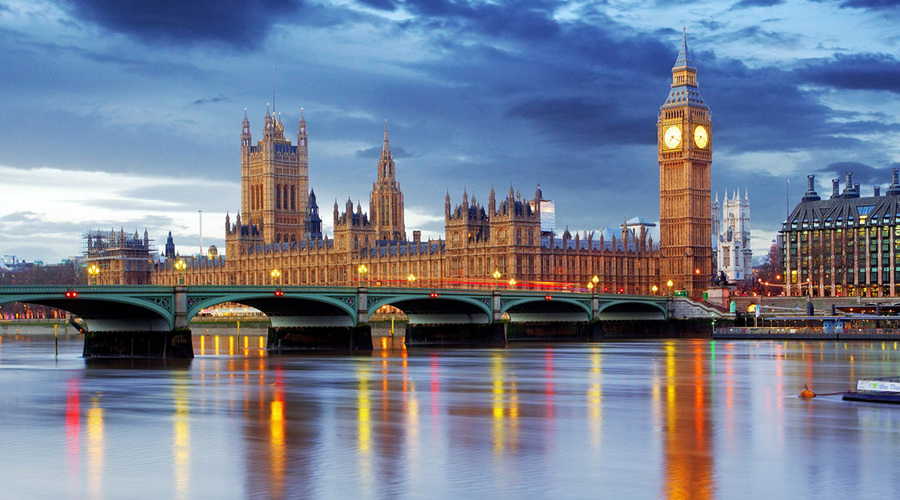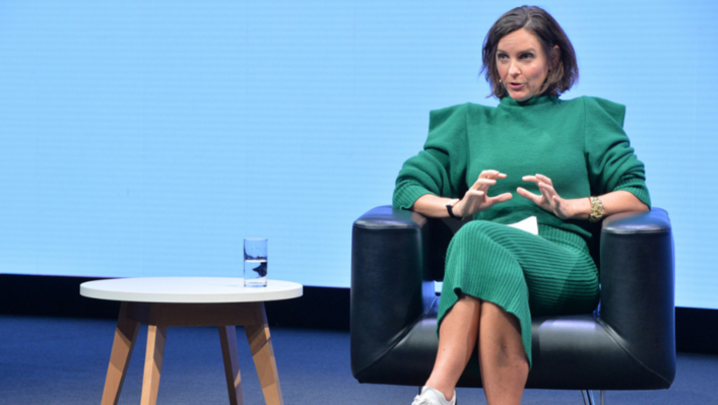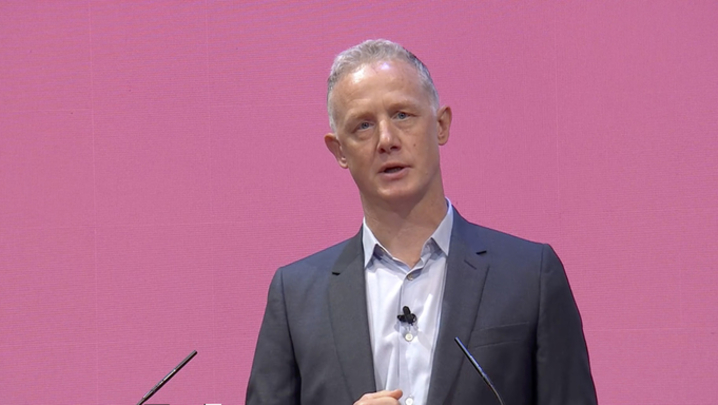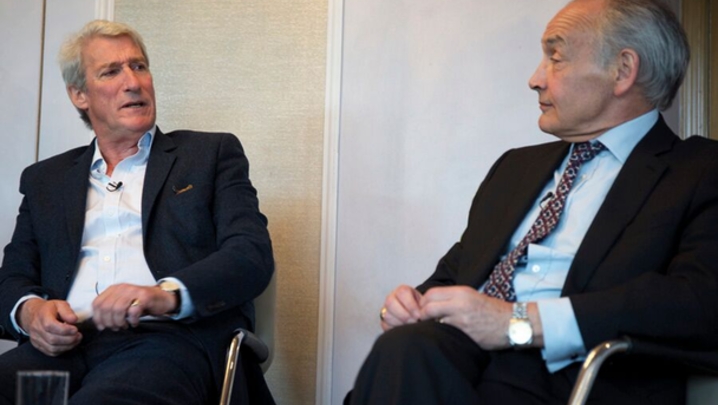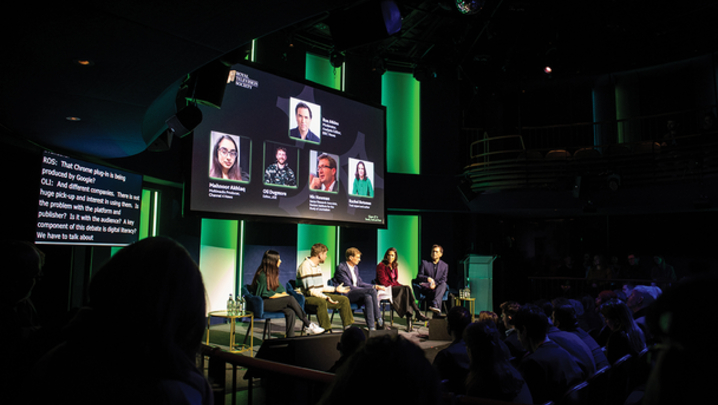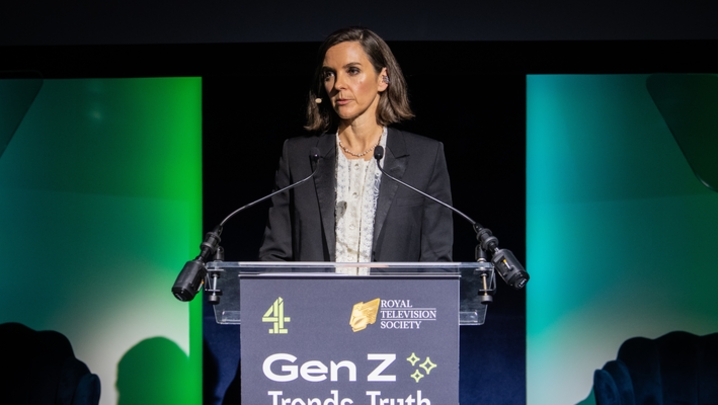On a day of high drama in Westminster, John Whittingdale steps up to outline the Government’s plans for the UK’s creative sector
Culture secretaries tend to come and go with some frequency – but not hours before they are due to address the RTS Cambridge Convention. On the first day of the Convention, Oliver Dowden was shifted sideways in Boris Johnson’s cabinet reshuffle and replaced by former Health and Social Care minister and I’m a Celebrity… contestant Nadine Dorries.
The minister for media and data, John Whittingdale, generously answered a last-minute call to appear by video link to read Dowden’s speech and answer questions from the Convention floor.
Whittingdale was culture secretary as recently as 2016, yet the new incumbent, the Johnson loyalist Dorries, is the sixth person to fill the post since his departure. Underlining the cut-throat nature of politics, Whittingdale – who told the Convention that he was “looking forward to working with Nadine” – was sacked the following day.
Addressing the RTS audience, Whittingdale restated the Government’s intention to privatise Channel 4, just one day after the consultation on the broadcaster’s future closed: “Standing still is not an option. In fact, it would be an act of self-harm.”
He argued that, “at some point”, the broadcaster would not have “the money to invest in technology and programming – and it won’t be able to compete with the streaming giants”.
That cash, he said, should come from the private sector, not the taxpayer: “It’s our strong position – as a point of principle – that the borrowing of a commercial TV channel should not be underwritten by a granny in Stockport or in Southend.”
Whittingdale said the Government would “ensure that Channel 4 remains subject to proper public service obligations”. These were “bound to include” a commitment to independent news and current affairs, commissioning indies and representing the entire nation.
He added: “The Government does not subscribe to the false binary choice between public service content and privatisation. We can have both.”
Many industry bodies, including the producers association Pact, have argued that a privatised Channel 4 would imperil the future of many small indies. However, Whittingdale insisted: “There is no way this Government will ever compromise our independent production industry.”
Elsewhere in his speech, the minister revealed that the upcoming white paper would “expand the remit of PSBs, with a requirement for them to produce ‘distinctively British’ content”.
He noted that “keeping the British spirit and identity alive” was a challenge, given the deep pockets of the global streaming services.
Taking a swipe at some of the output of the streamers, Whittingdale added: “Some of them look like they’ve been cleverly generated by a streaming algorithm to maximise their target audience globally.”
“Britishness” was a “nebulous subject”, he admitted, but “we all know it when we see it on our screens”.
“Who we are has been defined by television,” continued Whittingdale, name-checking classic British shows such as Only Fools and Horses, Coronation Street and The Great British Bake Off.
“We want to make sure that Britishmade content is, in fact, distinctively ‘British’. Now, I’m not talking about waving union flags and a picture of the Queen in every scene. I’m talking about continuing to make the programmes that are ours, and only ours, that could only have been made in the UK.
“Take Derry Girls – a show that addresses the Troubles and the rise and fall of Take That with equal passion. It could only have been made here. Likewise, what other country in the world would have come up with a concept as bonkers but brilliant as Gogglebox? Fleabag isn’t Fleabag without its British sarcasm and its self-deprecation.”
Public service broadcasters, however, needed protection if they were to “keep their place at the heart of television”, said Whittingdale, who announced that the Government would “make it a legal requirement” that major online platforms carried PSB content and ensured it was easy to find.
He added: “In a world of fake news and disinformation, [PSBs] are a trusted source of content and information. And they play a crucial role in bringing the nation together in times of crisis and celebration, whether it’s a national Covid press conference or a royal wedding.”
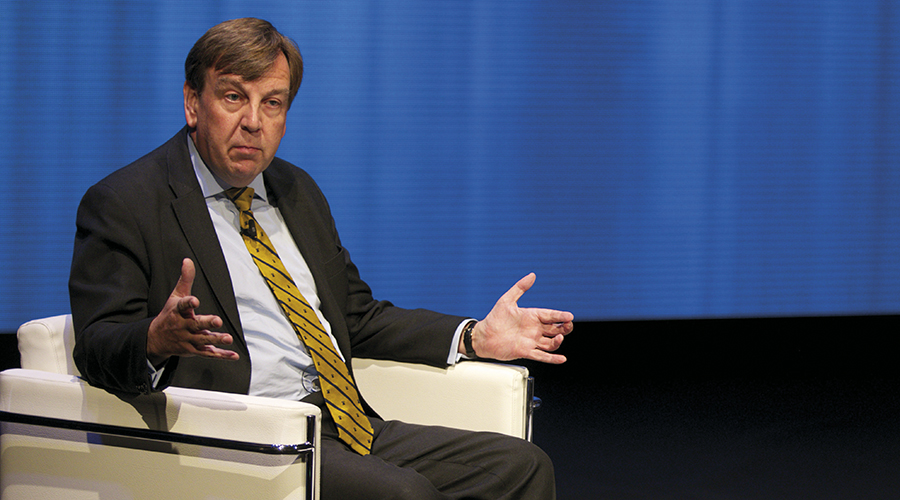
John Whittingdale on…
… Channel 4’s financial health
‘Uniquely among the public service broadcasters, [it] is completely dependent on a single source of revenue, which is advertising.
‘As more and more content becomes available and choice becomes greater… the pressure on advertising revenues is going to increase.… We feel it is right to examine what needs to be done to sustain Channel 4 in the long term – and that it is best to do that now rather than to wait for the crisis to happen.’
… C4’s programming diversity
‘Channel 4’s unique remit in delivering very different content and appealing to minority audiences, in being a risky, edgy broadcaster… is part of the attraction of Channel 4.
‘I don’t believe that anyone is going to want to acquire Channel 4 and then throw away the thing that is most successful at winning audiences. The Channel 4 brand is something that… any acquirer would want to preserve.… We will ensure that the remit of Channel 4 continues and… we may even enhance or strengthen it.
‘In our mind, Channel 4 needs to continue to make the kind of programming that it has been so successful at over the past 40 years.’
… What ‘Britishness’ means for TV
‘Britishness is quite hard to quantify but that’s something we will talk to Ofcom [about] – how precisely an obligation will work…. The job of the public service broadcasters is to produce programming that appeals to British audiences. If we can sell them around the world, that’s fantastic, but the first and primary audience needs to be Britain.’
… Independent producers
‘When Channel 4 was set up… the independent production sector didn’t exist. It was set up to provide the catalyst, which was hugely successful, to grow the production sector.
‘We’re now at a point where some of those independent production companies are actually bigger than Channel 4…. But Channel 4 still has a role in supporting smaller independent production companies and start-ups….
‘The remit will continue and, therefore, we will see Channel 4 continuing to commission from the independent sector – whether or not it’s allowed an in-house production facility of its own [is] something that we haven’t reached a decision on yet.’
… The BBC
‘I’m a huge supporter and want to see [it] continue as the centrepiece of public service broadcasting in this country, in state ownership…. We will have a debate about the best means of funding [it] at the end of the Charter.’
Session Ten: ‘UK keynote: Secretary of State’. The presentation was given by John Whittingdale MP, who was in conversation with Convention Chair Ben McOwen Wilson. The session was produced by Sue Robertson and Martin Stott. Report by Matthew Bell.

